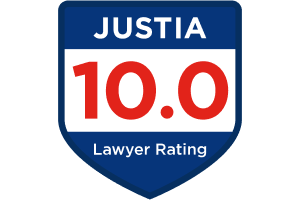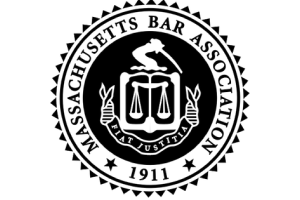White collar crimes
Sometimes, lapses in judgement or innocent errors – like imperfect bookkeeping or cashing a questionable check – can snowball, resulting in charges for embezzlement, uttering a false check, or fraud. These charges can put your finances, career, and future in jeopardy.

White collar crimes are non-violent offenses that typically involve deception or fraud for financial gain. While these offenses may seem less severe than violent crimes, they carry significant consequences, including criminal penalties, damage to reputation, and can lead to financial ruin. At Erkan & Sullivan, P.C., we understand the complexity of these cases and are committed to investing the extraordinary care and attention to detail that is the hallmark of white collar crime defense. These cases require a great deal of precision and strategy. Fortunately, that is our speciality.
Let’s talk about the different types of white collar crimes.
1. Embezzlement
Embezzlement involves the unauthorized taking or misappropriation of funds entrusted to someone in a position of trust, such as an employee managing company accounts. Innocent mistakes in bookkeeping or misunderstandings about access to funds can lead to accusations of embezzlement. We have seen this time and time again. It’s especially hard to stomach when we see individuals volunteering their time to handle the accounting or books for a charitable organization, only to be wrongly accused of raiding the till. G.L. c. 266, § 30 covers this offense.
2. Fraud
Fraud encompasses a wide range of deceptive practices, including:
- Bank Fraud: Using fraudulent means to obtain money or assets from a financial institution. G.L. c. 266, section 33 covers this offense.
- Insurance Fraud: Filing false insurance claims to receive unwarranted payouts. The applicable statute is G.L. c. 266, section 111B.
- Investment Fraud: Misleading investors about financial opportunities or risks.
- Larceny by false pretenses: Causing someone to part with money or property based on false statements. G.L. c. 266, § 30 covers this offense.
3. Uttering a False Check
This charge arises when someone is accused of knowingly presenting a fraudulent check for payment. However, many cases stem from innocent actions, such as cashing a check without realizing it was invalid or improperly completed. This felony is prosecuted under G.L. c. 266, section 5.
4. Forgery
Forgery involves falsifying documents, signatures, or other items with the intent to deceive. However, proving intent is often the government’s weakest link in these cases, as is lack of consent or permission. It’s not a crime, for instance, to sign someone’s name to a check if they permitted you to do so. The applicable statute is G.L. c. 266, s. 1.
5. Tax Evasion and Financial Misconduct
Mistakes in filing taxes, such as underreporting income or failing to document deductions properly, can lead to allegations of tax evasion or other financial crimes. The applicable Massachusetts statute is G.L. c. 62C, § 73.
How the Government Handles White Collar Crime
While the government aggressively charges white collar crimes, it often lacks the expertise or diligence to prove them – especially in state court. For example:
- Speculation and conjecture as a substitute for evidence: The prosecution frequently relies on circumstantial evidence, such as incomplete financial records or speculative testimony. By rigorously testing their assumptions, we can often expose their shaky foundations.
- Failure to Use Experts: Cases involving alleged forgeries or financial discrepancies often require expert analysis, such as handwriting or forensic accounting. Yet, the government may overlook these steps due to overconfidence or resource constraints. When they take shortcuts in pursuit of convictions, it’s important to have specialized lawyers who will stop them in their tracks.
- Pressure Tactics: Prosecutors often use the threat of severe penalties to scare defendants into pleading guilty, regardless of the strength of their case. In our experience, the greater the bluster and threats, the more the government is likely full of hot air. The trick is having lawyers who know the difference and plan and act accordingly.
At Erkan & Sullivan, P.C., we challenge these tactics head-on by holding the government to its burden of proof, challenging their assumptions, and calling their bluffs. When the dust settles, the prosecutor is often left holding the pieces, trying to figure out how things fell apart before their very eyes.
Defense Strategies for White Collar Crimes
1. Challenging the Evidence
We meticulously analyze every aspect of the prosecution’s case, identifying inconsistencies, errors, and weaknesses. For example:
- We never assume the authenticity or reliability of financial records or other documents. There are various procedural and evidentiary hurdles that prosecutors struggle to overcome. We will make sure these obstacles stand sturdy to increase the likelihood that the government will trip over them in pursuit of a conviction.
- Challenging forensic evidence, such as handwriting analysis, when the government fails to use qualified experts. These cases are like a chess game. Trained lawyers can exploit the mistakes of prosecutors who often fail to anticipate more than a couple of moves ahead.
- Highlighting gaps in the chain of custody for key documents or assets.
2. Proving Lack of Intent
White collar crimes often hinge on proving that the accused acted with intent to defraud or deceive. We demonstrate that:
- Errors were unintentional or the result of poor communication.
- The defendant lacked knowledge of the alleged fraudulent activity.
3. Exposing Government Overreach
In many cases, the government’s eagerness to charge results in overreach or misinterpretation of the facts. We highlight instances where:
- The charges exaggerate the true extent of any culpable conduct.
- The prosecution cannot establish a clear link between the defendant and the alleged crime. White collar crimes are almost always unwitnessed, such that weak links in circumstantial evidence can lead to acquittal.
4. Negotiating Reduced Charges
When appropriate, we work with prosecutors to negotiate favorable outcomes, such as reduced charges, diversion programs, or restitution agreements that avoid criminal convictions. Very often, the alleged victim in these cases is motivated by money. Restitution payments can be leveraged in exchange for reduced or even dismissed charges.
5. Preparing for Trial
We approach every case as if it will go to trial. This proactive approach ensures that we are always ready to expose flaws in the government’s case and present a compelling defense to a judge or jury. When it comes time for trial, that is when we truly separate ourselves from the pack. Our experience in the trenches as prosecutors then defense lawyers has forged us into some of the most skillful and persuasive trial lawyers in the state.
Why Choose Erkan & Sullivan, P.C. to Defend Your Case?
Attorneys Murat Erkan and Ryan Sullivan bring decades of combined experience in criminal defense, with a proven track record of successfully defending clients against white collar crime allegations. We offer:
- Deep Expertise: Our attorneys understand the nuances of financial crimes and how to challenge complex evidence.
- Relentless Advocacy: We are not intimidated by the government’s scare tactics and will fight tirelessly to protect your rights.
- Tailored Defense Strategies: Every case is unique, and we craft personalized strategies to achieve the best possible outcome for our clients.
Potential Consequences of White Collar Crime Convictions
A conviction for a white collar crime can result in:
- Criminal Penalties: Fines, restitution, and imprisonment.
- Professional Consequences: Loss of professional licenses and barriers to future employment.
- Reputational Damage: Public allegations and convictions can harm your personal and professional reputation.
- Immigration consequences: Because these offenses are always considered to involve “moral turpitude,” deportation is always on the table. In fact, if loss amounts are proved to exceed certain thresholds, waivers or defenses otherwise available in immigration proceedings may be out of play. Lawyers that know how to fight these cases and avoid deportable convictions are a must for non-citizens.
Contact Erkan & Sullivan, P.C. Today
If you or a loved one has been accused of a white collar crime, time is of the essence. Contact Erkan & Sullivan, P.C. at (978) 474-0054 or send us an email for a confidential consultation. We will guide you through the legal process, challenge the government’s case, and fight to protect your rights, reputation, and freedom.





